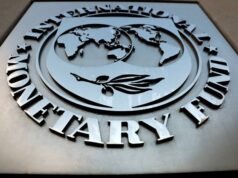Closer EU-India ties will help Geopolitical Balancing

The Chinese Virus from Wuhan has shaken the world and put globalization in correct perspective. Even total regional integration needs to be done in a proper manner. The old saying of not putting all eggs in one basket must be followed.
Now geopolitics is being largely reshaped by emerging nationalism, Security and trade relationships. With the world economy seriously disrupted by the relentless pandemic international relations are more unpredictable by fiercer power rivalry between existing big powers.
In this a closer EU-India relations will surely add a new element of stability and balancing to the existing dynamic but disturbing realignment of geopolitics.
Economically and strategically, it is very likely that closer EU-India relations may be leveraged to put pressure on both China and USA to force them to readjust their foreign economic policy and security strategy. Their overall strategic assessment over the external environment will need to be recalibrated.
Rapprochement seems to have been a trend between the EU and India since the two sides held a video summit in July. Think tank reports and media commentaries are predicting the possibilities of a closer and more substantialized EU-India bilateral cooperation. Germany’s new Policy Guidelines for Indo-Pacific Region on September 1st has further intensified the policy debates.
Although declared as a strategic partnership in 2004, the EU-India relations had been kept outside the list of priorities of the EU leadership as India was still emerging from its self imposed shackles. Also India had started asserting itself and started seeing things from the perspective of its own National Interest.
Thus Negotiations on an EU-India Free Trade Area has been virtually frozen since 2013. By the end of 2019, EU-India trade accounted for a mere 1.9 percent of EU’s total trade. India was very clear that no new “ EAST INDIA COMPANY “ will be permitted at any cost,
So the EU political leadership largely looked to East and Southeast Asia, and carried out negotiation of FTA treaties with Singapore, Vietnam, and Japan, while also spending a large amount of energy and resource in its relationship with China.
The European Union’s new approach to India reflects its latest nuanced adjustments of its strategic assessments and policy orientations since this summer, due to a series of internal and external situational changes.
Europe’s foreign policy community began realize the true importance of India only after the Wuhan Virus created the Worldwide havoc.The US too began to intensify its “Indo-Pacific Strategy,” from the second half of 2019.
Presently there is tense geopolitical reshuffling resulting from the China-US strategic rivalry that has increased from early 2020, European politicians and think tankers are now attaching more importance to India in their strategic planning.
EU’s effort to develop bilateral relations with India is motivated by economic, political and strategic concerns. Given worldwide waves of economic nationalism, the EU is also stressing “European strategic autonomy” and economic sovereignty, emphasizing the necessity of reducing its dependency on China.
India is increasingly viewed by Europeans as an alternative to China for Europe to diversify its external supply chains and to extend European exports and business.
To retain a advantageous position in cutting-edge technologies and emerging industries, EU is now working to build its own digital platforms. In this India can become a potential partner for Europe’s digital transformation, considering the highly developed Indian software industry.
There is going to be intense EU-China competition and conflicts in technology, industry, trade, and investment. In all this India is being considered a counterbalance to China.
Furthermore, as US-China tensions continue in the South China Sea, the neighboring Indian Ocean appears to be more and more strategically significant and the EU is hoping to exert its own strategic influence in this region.
Finally, there is an EU-India commonality in their support for a continued process of global climate governance, so EU elites perceive potential cooperation on Europe’s green deal.
Now everyone has realized that India is the biggest democracy by population and has a big geographical size too which is strategically located to dominate the entire Indian Ocean.
It is also the third largest economy by PPP and increasing. Militarily it is a rising power and has shown the will power to defend its interests.




